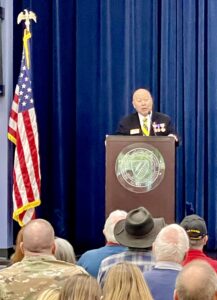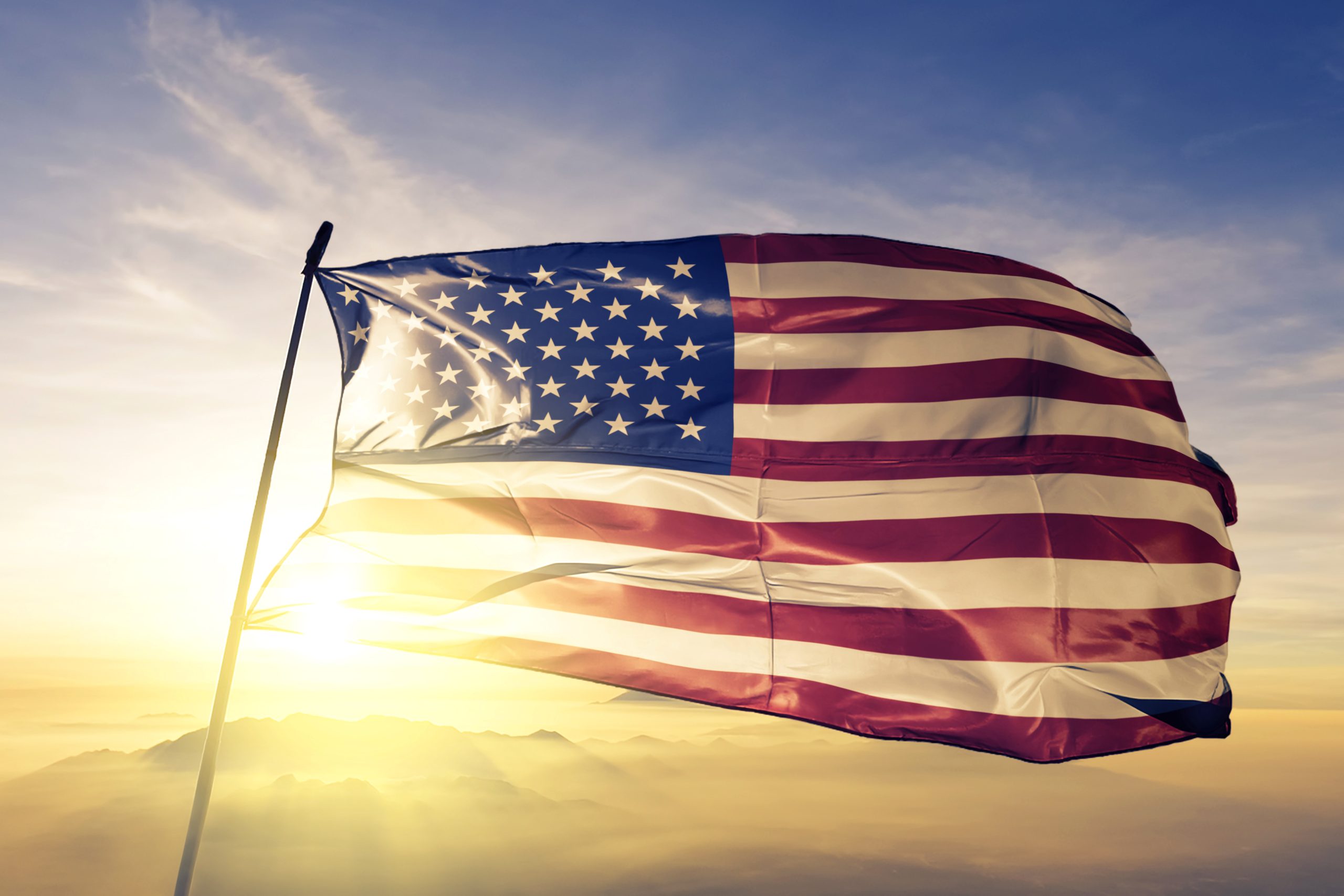Today, we honor those who have served in our nation’s armed forces. We honor their dedication, their self-sacrifice, and their commitment to, in the words of General Douglas MacArthur, “Duty, honor, country.”
Every veteran has his or her own story about how their military service impacted their life.

What I’d like to do is to tell you the story of one veteran and how her military service changed her life.
Tonja Ochonma is one of my best friends. She was born in a little town in East Texas.
Tonja never really knew her father. Her mom raised her and her four siblings by herself.
Tonja says that her mom worked as a cook and the family lived in poverty. However, because of the influence of her godmother, who was a pioneering African-American woman who earned her college degree in the 1930s, Tonja enrolled in Prairie View A&M, which is one of the historically black universities in the country.
Tonja’s college roommate was in the Army ROTC–the Reserve Officer Training Corps. When Tonja saw that joining the ROTC would pay for her tuition, she signed up.
The ROTC not only paid for her college, it also provided her mentors who would greatly impact her life.
Coming from an impoverished family, college was challenging for Tonja, but her ROTC professor of military science took her under his wing and made sure that she got through her academic courses for her major. He always checked on her progress to make sure she did not fall behind and that she had the support she needed to succeed.
When Tonja finished college, she was commissioned as a second lieutenant in the U.S. Army. She spent 12 years on active duty and was given important responsibilities.
She was deployed to Iraq where she oversaw high-priced contracting—anything over a million dollars—for material needed for combat.
She then became the aide to a two-star general who commanded the Army’s 63rd Regional Support Command.
Tonja then went into the Army Reserve and eventually was promoted to lieutenant colonel. She deployed to Saudi Arabia for a year and then retired from Army service.
During her time in the Army she was able to earn graduate degrees, all paid for by the Army. She earned her master’s degree using the Army tuition assistance program and then earned her Ph.D. in education leadership using the post-9/11 G.I. Bill tuition benefits.
My friend Tonja went from being dirt poor growing up in rural Texas to now being Dr. Tonja Ochonma, and she has just accepted a great civilian position with our friends at the U.S. Air Force.
I asked Tonja what military service taught her and she said that first and foremost, it taught her how to be confident in herself, how to push herself to achieve, and to understand that she was capable of great things.
She told me that if it were not for her military service, she would most likely have ended up like a lot of her friends in her hometown who wasted away their lives without goals and with little success.
Most importantly, she says that she lives her life according to the Army’s 7 Core Values: loyalty, duty, respect, selfless service, honor, integrity, and personal courage.
She prides herself on having integrity, standing up for what’s right, even in tough situations.
The Army also taught her a work ethic—don’t be a quitter, work hard, and be trustworthy.
Most important, she says, is the fourth Army value of selfless service, which puts the welfare of the nation, the Army, and your subordinates before your own.
Selfless service is larger than just one person. In serving your country, you are doing your duty loyally without thought of recognition or gain.
This concept of selfless service is critically important today because we are living in an extremely perilous time.
Our country is wracked with division at a time when we are facing great danger beyond our shores.
In the face of division and danger, what can America rely on, what can we all rally around? I will tell you—it is our great United States military.
It is our military that is perhaps the most unifying and respected institution in our nation.
Kathy Roth-Douquet understands how the military unites people. Writing in the publication Foreign Policy, Kathy said that as she grew up, “the military was deeply foreign to me.” Then, she married a member of the military and her perspective totally changed.
She said: “In the military, and in a military family, you learn to do something very hard and not of your own choosing, for a cause bigger than yourself. You’re working for a cause determined by the mechanisms of democracy, standing side by side with others who are fully committed. U.S. civilian life has a striking absence of ‘common causes’—tasks that remind us that there is more that unites us than divides us.”
She observed: “There is a joy in treating the person next to you as more important than you are, regardless of any external identity, political position, or family background. What makes every serviceperson valuable is not their wealth, SAT score, or political opinions, but that they have sworn to support and defend, as well as bear true faith and allegiance to the U.S. Constitution, no matter the personal cost.”
She said, “The Founding Fathers conceived of the U.S. military as a crucial part of a self-governing democracy; a citizen military, not an army of mercenaries or a warrior caste.”
She concluded by saying, “But perhaps most relevant in a fiercely divisive political climate is that in the military, you learn to be an American.”
President Ronald Reagan once said: “My fondest hope for each of you is that you will love your country, not for her power or wealth, but for her selflessness and her idealism.”
On this Veterans Day, we need to honor the selfless service of the men and women who have served our country, plus those currently in uniform who are protecting us today.
We are entering a phase where we face some of the greatest challenges that our nation has ever faced in our history.
We can meet those challenges and prevail through strength, unity of purpose, and commitment to the values that made America, as President Reagan said, the shining city on a hill.
Lance Izumi is senior director of the Center for Education at the Pacific Research Center. He was direct-commissioned as a captain in the California State Military Reserve and served from 1991 to 1996.

